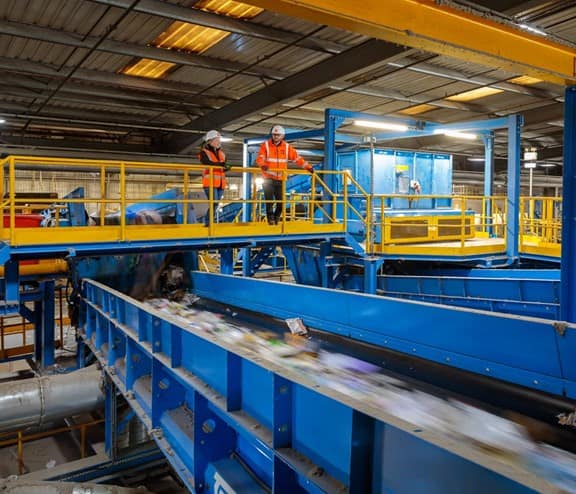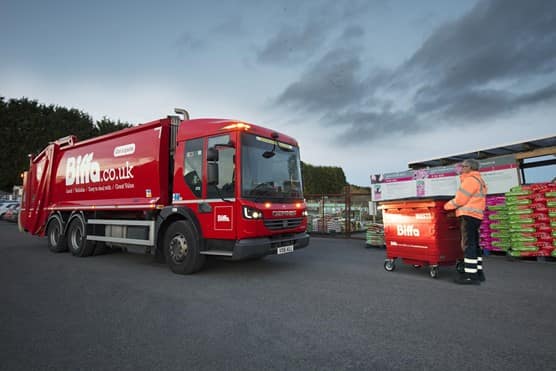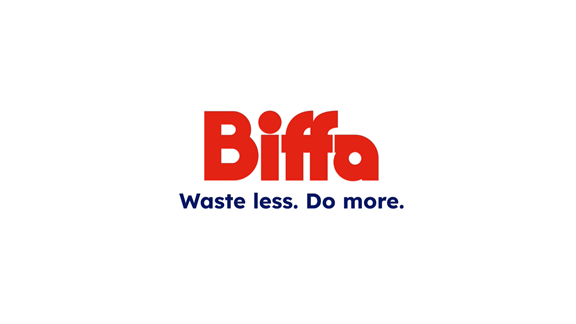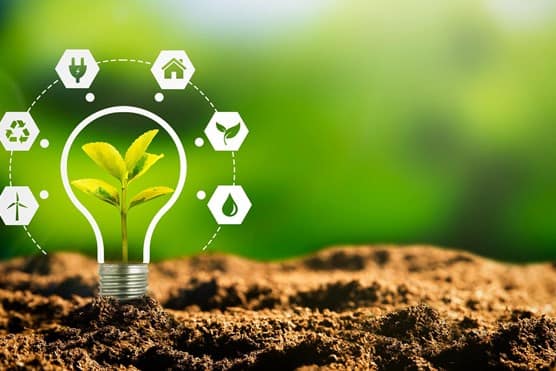
UK Circular Economy Explained
The circular economy is embedded in many large organisations’ thinking, but so far, it has not reached smaller businesses in the same way.

What is the UK circular economy?
In theory, a circular economy is where everything has value and nothing is wasted. It’s a single system where materials go round and round being reused or recycled. Although, in an ideally designed Circular Economy, even recycling would be avoided completely. Products would be designed from the start to be reused, repaired, and remanufactured, but we are far from realising this. While our economy relies on disposable packaging, recyclability is key to managing waste sustainably and an integral tool to enable a circular economy.
How does a circular economy work?
As with lots of things, we get out what we put in. In order for things to be reused and recycled, the materials we put into the system need to be capable of being reused and recycled. They also need to be separated in the correct way for us to be able to collect, sort and process in the most efficient way. The more we can reuse or recycle, the less UK businesses will need virgin material to manufacture products from scratch. That’s less resources used and CO2 emitted in order to extract, process and ship materials across long distances.
Does the UK circular economy exist?
Yes, but it exists in patches throughout the UK. It does not exist like the financial economy, where everything is joined up because we have a central currency flowing between business, financial institutions and households. For the circular economy, the materials that make up the products we rely on each day function as a currency of sorts. For it to flow properly we need consistently reusable and recyclable packaging which are manageable within our existing infrastructure. This will create a solid foundation to attract well needed investment as outlined in Biffa’s Blueprint for Waste Net Zero.
In the waste and recycling industry we use the term ‘closed loop recycling’. A closed loop is where the recycling and reuse of a used product supplies the material used to create a new version of the same product. In the cases where we have closed loop systems, we have higher quality recyclate streams going into sorting and processing facilities, this uses less energy and resources to sort, clean and can then be transformed into new products. The objective is to keep expanding these ‘closed-loop’ systems while continuously evolving regulations, measurement and reporting of how waste is collected, transported and recycled.
What is an example of a closed loop system ?
British milk bottles. Many people would have noticed the evolution of milk packaging over the years. This is the result of continuously improving packaging, so a used milk bottle supplies the material used to create a new one. Biffa brought together the dairies, retailers and government agencies to align on the most sustainable packaging to create a system for milk bottle recycling; collecting used milk containers, processing them into HDPE pellets and returning them to manufacturers.
Working together, we have continuously improved packaging and processing. Now even the new clear lids can be recycled with the bottles, ensuring minimal waste. 85% of British milk bottles contain HDPE which has been recycled by Biffa Polymers using empty milk bottles collected from households. Currently typical recycled content of these bottles is about 30% - but there is no reason it can’t be up to 50%.
What are the benefits of a circular economy?
A circular economy means that we waste less and recycle or reuse more. Containers are used, recycled and transformed into new products, as opposed to being disposed of and replaced. Closed-loop systems mean it’s more likely that valuable materials like food grade HDPE and PET plastic can stay in the UK, in most cases travelling less distance and creating less carbon emissions than importing.
Take plastic bottles for example, when a recyclable bottle is disposed of it must be replaced by a newly manufactured container. Research by Wood Mackenzie highlights that using recycled pellet material to make new products shows a 67% reduction in emissions compared to virgin PET. In a UK circular economy, we can protect resources and help combat climate change.
Are only large businesses part of the UK circular economy?
No, big and small businesses are equally important, the circular economy involves everyone. Larger companies have been spurred into action by many driving factors: legislative changes, public and investor opinion, cost savings, brand perception, carbon emissions targets, resource efficiencies and environmental protection. Many larger organisations have teams of professionals dedicated to sustainability.
However, lots of smaller actions from the millions of smaller UK businesses is perhaps even more significant. Under the governments’ Resources and Waste strategy, more schemes are coming in that will impact smaller businesses. Impending legislation will drive many UK businesses to consistently segregate used materials for collection (to then be reused or recycled), improve the recyclability of packaging and create financial incentives around recycling.
How can smaller businesses get involved in the circular economy?
While many SMEs are not responsible for designing the products and packaging that enters our circular economy, they play an integral role in ensuring the used packaging materials are collected and processed. The contribution of UK SMEs to protect our environment and combat climate change cannot be underestimated. The question remains whether all SMEs understand their role and the significance of their waste management choices.
If Biffa is your waste supplier and you have a recycling service, your business is already plugged into the UK circular economy. When a small business identifies a material that can be reused, they become part of the circular economy. When a restaurant orders a food bin and stops putting food in their general waste bin, they become part of the circular economy, as energy from this end-of-life food can be recovered, along with compost and liquid fertilizer. When a manufacturer introduces recycling bins at quality control points on the production line, they become part of the circular economy. When a construction company moves away from a single skip approach and separates recyclable materials, they become part of the circular economy.
Small sustainable steps make a big difference when everyone takes them.
Find out how your business can recycle more with Biffa



